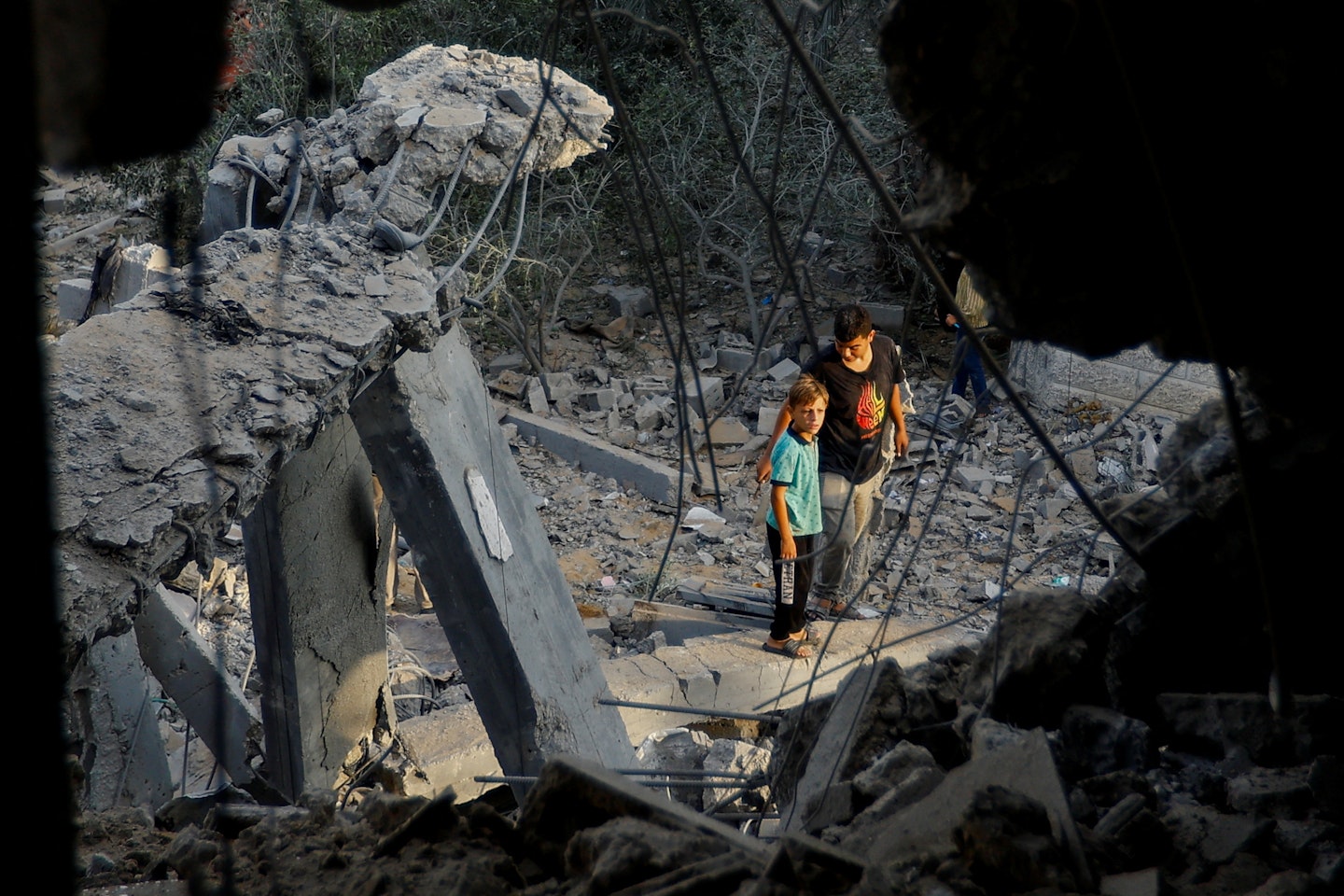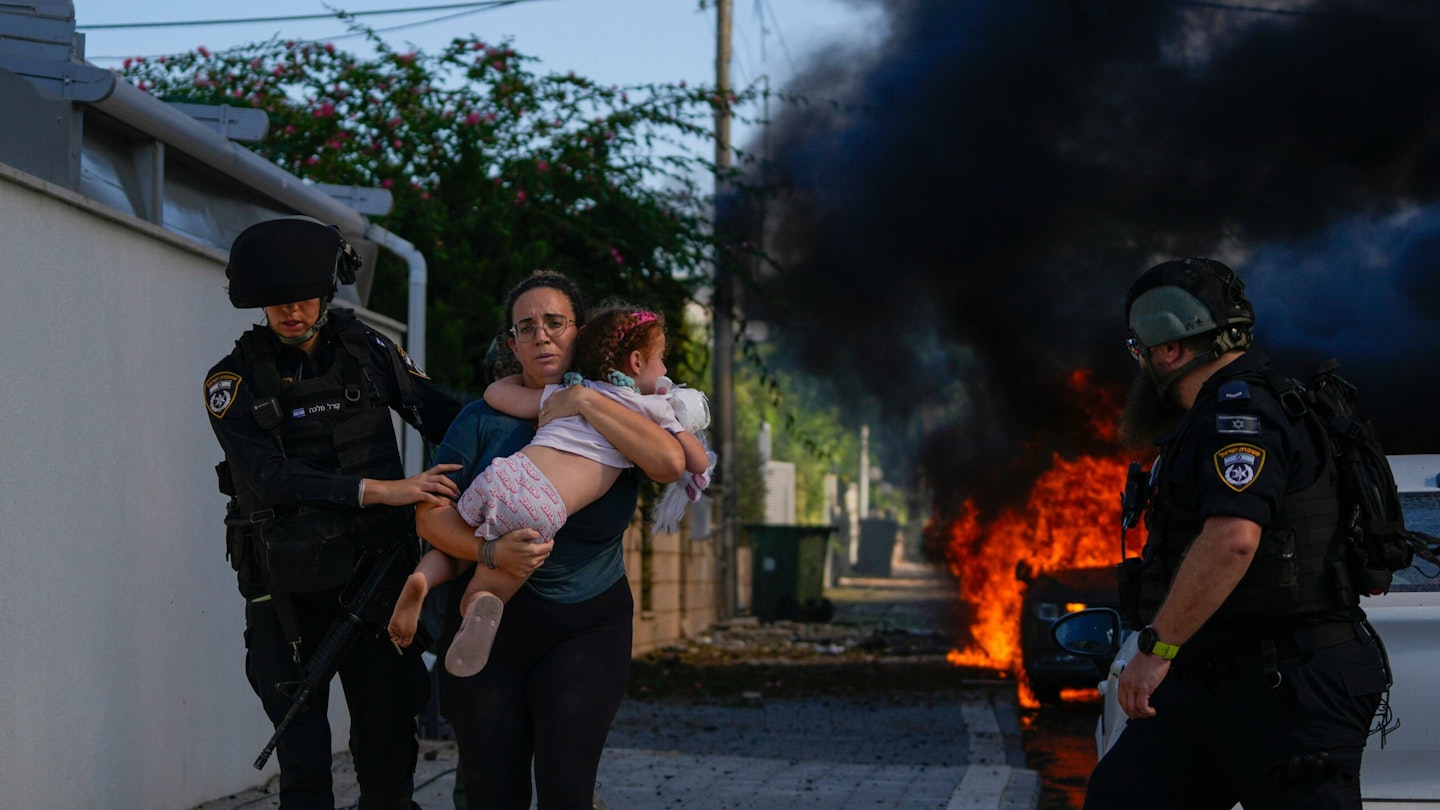TRIGGER WARNING: This article contains extremely distressing content
From 6am until midnight each day,Dr Sharron Bransburg-Zabary has been working at the milk bank in Ramla, Israel, providing donated breast milk to babies whose mothers have been captured, killed or called up to serve in the army.
A few days ago, a baby was brought in after his mother was taken hostage by Hamas, the militant Palestinian group that rules the Gaza Strip.
‘She was able to drop the infant on the way and hide him,’ Sharron, 53, says. ‘After hours, soldiers found him and he was brought to us. That mother... she was doing everything she could to save her kid’s life.’
As director of the National Mother’s Milk Bank, part of the Israeli Red Cross, she has been inundated with donated breast milk since war broke out, part of a huge effort to help following the terrorist attack.
‘We’ve had calls from pregnant women suggesting they already start pumping their milk,’ she says. ‘Usually in war, the story is of the men, but this time women feel we can do something more than just be the mothers and sisters of soldiers. We can take an active role.’
The tragedy she speaks of started on 7 October when Hamas launched the biggest attack Israel has faced since 1973. Gunmen infiltrated a music festival and kibbutz communities near the Gaza Strip.
Terrorists paraglided over the border to carry out a massacre at the festival, killing more than 260. Details of the kibbutz slaughters were still emerging as Grazia went to press, but it’s thought 1,300 Israelis have been killed and at least 150 have been taken hostage. Israel has published photographs that it said showed the mutilated bodies of babies allegedly murdered by Hamas.
In retaliation, Israel has launched a barrage of airstrikes on Gaza, laying waste to whole communities, with hospitals, homes and schools hit. Reports from the region say over 1,300 Gazans have been killed and 338,000 displaced as food, fuel and medicines run low.
The violence comes after years of hostility in the region, but Martha Kearney, the BBC Radio 4’s Today presenter, says, ‘Everyone I’ve talked to says this feels very different.’
We speak as she waits to leave Israel at Tel Aviv airport after five days of reporting from the warzone. ‘It’s just crazy. So many people are keen to leave the country. But there are also people coming back; reservists coming to fight,’ she says.
Alongside Afghanistan and Northern Ireland, she says this is one of the most shocking events she’s reported on during her long career. ‘The numbers killed and the way in which they died are very shocking.’
She spoke with parents whose son, Omri, was killed at the festival. He’d been messaging his family; when the messages stopped they realised he and his friends had been shot dead.
Shai Sason, 39, who lives in the Nir Am kibbutz close to the Gaza border, says 100 of his neighbours have been murdered. When security alarms blared at around 6am on 7 October, he, his wife Dafna, 37, and their three young sons ran to their safe room.
They heard missiles, then panicked WhatsApp messages arrived, with news that it wasn’t just an air attack. ‘We realised terrorists had got inside the kibbutz,’ he says. They could hear gunfire and shouting in Arabic. ‘I took a knife from our kitchen and we sat there all day and prayed.’
At 7pm, desperate to flee, they crept outside to a scene ‘worse than anything Israel has ever seen before’, he says. For those from the kibbutz ‘there was no home for them to come back to. Everything burnt. It’s a horror. The world needs to know what they did to us. I’ve lost about 100 close friends. My best friend, his small kids. They took the head. A four-year-old girl. What did she do to the world?’ he cries in agony. ‘A pregnant woman and her unborn baby were killed with a knife. We’re talking about many babies and kids under five killed.’
That his family was spared, he says, is pure luck. ‘We got in our car and drove. The air smelt like burnt skin and the roads were full of bodies,’ he says. Now, they’re at a hotel in Tel Aviv trying to process the events of the past few days with other survivors.
Meanwhile, those in Gaza say the Israeli response is also disproportionately affecting women and children, the innocent bystanders in war.
Kearney spoke to a British doctor who flew out to Gaza to help the injured. She said, ‘The awful thing that he told me is how many children are being hit. He’s doing a lot of surgery, facial reconstruction, on young children who’ve been hit by glass.’

‘The killing and maiming of children, the abduction of children, attacks on their schools and hospitals are all defined by the UN as grave violations, and those responsible should be held to account for their actions,’ says James Denselow, head of conflict and humanitarian advocacy at Save the Children (STC) UK. ‘Humanitarian access through safe and secure routes to get to children is desperately needed.’
As Grazia went to press, Israel’s military had issued an order for more than 1 million people to evacuate Gaza within 24 hours ahead of an anticipated ground strike. Stéphane Dujarric, a spokesperson for the UN secretary general, said the organisation considered it ‘impossible for such a movement to take place without devastating humanitarian consequences’.
STC also points out that children living in Gaza have already been impacted by years of conflict. According to their research last year, four out of five children in Gaza reported living with depression, grief and fear. It also found more than half of Gaza’s children have contemplated suicide and three out of five are self-harming.
Kearney adds that the fear is that for every family losing loved ones, ‘In the end it makes it harder and harder to find any peaceful agreement because so many people are deeply wounded.’
Yet through unconceivable mourning, communities are coming together to do what they can to lift each other up.
‘I feel very proud that I’m able to help mothers in this time of crisis,’ says Sharron. ‘Breastfeeding was the dream of the mother. I’m just glad I’m able to help them continue the dream they had for their child.’
Donate to STC’s emergency appeal at savethechildren.org.uk/gaza-israel-crisis
